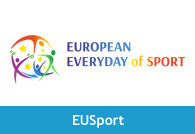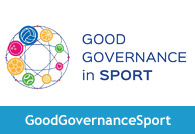NEWS

BSDA is partner in GoSport project


06.02.2020
As laid down by the European Sports Charter Sport must be:
• Accessible to everybody;
• Available for children and young people in particular;
• Healthy and safe, fair and tolerant, building on high ethical values;
• Capable of fostering personal self-fulfilment at all levels;
• Respectful of the environment;
• Protective of human dignity;
• Against any kind of exploitation of those engaged in sport.
• Accessible to everybody;
• Available for children and young people in particular;
• Healthy and safe, fair and tolerant, building on high ethical values;
• Capable of fostering personal self-fulfilment at all levels;
• Respectful of the environment;
• Protective of human dignity;
• Against any kind of exploitation of those engaged in sport.
It has been widely accepted that sport clubs are powerful and influential socio-political institutions because of their traditional dual economic and social bonds with local communities. They have been conceived as both homes for social interaction and powerful vehicles for social “exchange”, mainly due to their enormous communicational power, youth appeal/ identification and “role-modelling” ability.
At the same time human rights and sport have become increasingly intertwined, as sport has significant potential to impact human rights. The UN General Assembly has recognized the valuable contribution of sport in promoting education, development, peace, cooperation, solidarity, fairness, social inclusion and health at the local, regional and international levels, and has noted that sports can contribute to an atmosphere of tolerance and understanding among peoples and nations. The 2015 Final report of the Human Rights Council Advisory Committee on the possibilities of using sport and the Olympic ideal to promote human rights for all and to strengthen universal respect for them, stresses the fundamental role of sport in educating children and young people (for whom physical activity and sport are used as methods to acquire social skills, positive attitudes and moral values), the value of sport in combatting all forms of discrimination and the role that sport can play in promoting human rights.
Against this backdrop, organizational governance and (corporate) social responsibility in sport have become a centre of attention for researchers, managers and policy-makers. The fact that sport organisations have mass media distribution and communication power and (youth) appeal, places increasing focus on sport organisations to implement social responsibility initiatives in the belief that sports has a greater impact than the activities of commercial organisations.
Given the important role that sports can play in combatting discrimination and in promoting human rights tolerance, solidarity and social inclusion, it is crucial to increase sports organizations capacities and abilities to implement socially responsible behaviour and lead awareness on social issues by enhancing their organizational governance in the context of social responsibility. This is important not only for professional teams and clubs, but for all types of for-profit and non profit sports organizations, such as semi-professional and amateur sports clubs, (multi)sports clubs and sports academies etc.
In order to contribute to the improvement of good governance in sports organizations (and especially participation and inclusivity) in Bulgaria, Croatia, Cyprus, Greece and Italy, the proposed project aims at:
• Enhancing the capacities and awareness of sports clubs/organizations, professional and semi-professional sports teams and clubs on implementing good governance principles through social responsibility, focusing on participation and inclusivity irrespective of gender, race, sexuality, disability, age or otherwise and the promotion of human rights;
• Improving knowledge on how sport organisations interpret, manage and prioritise social responsibility issues within their organisations, especially in terms of combatting violence and tackling racism, discrimination and intolerance, as well as in encouraging social inclusion and equal opportunities;
• Providing tools to sports organizations and professionals for understanding the relationships among the organization, its stakeholders and society, and integrating socially responsible organizational governance practices;
• Contributing to the promotion of participation and inclusivity principles in sport through social responsibility.
The GOSport project also addresses the European policies in the field of sport, since the EU is fully engaged to promote good governance in sport and the promotion of good governance principles has been a priority.
GOSport project will ensure the following results:
• Research on how sport organisations interpret, manage and prioritise social responsibility issues and how organizational governance influences SR and vice versa;
• Development and piloting of awareness raising & training toolkits;
• Development and piloting of awareness raising & training toolkit for professional and semi-professional sports teams and clubs.
GOSport project includes 5 countries: Bulgaria, Croatia, Cyprus, Greece and Italy, and is co-funded by the Erasmus+ Programme of the European Union.
At the same time human rights and sport have become increasingly intertwined, as sport has significant potential to impact human rights. The UN General Assembly has recognized the valuable contribution of sport in promoting education, development, peace, cooperation, solidarity, fairness, social inclusion and health at the local, regional and international levels, and has noted that sports can contribute to an atmosphere of tolerance and understanding among peoples and nations. The 2015 Final report of the Human Rights Council Advisory Committee on the possibilities of using sport and the Olympic ideal to promote human rights for all and to strengthen universal respect for them, stresses the fundamental role of sport in educating children and young people (for whom physical activity and sport are used as methods to acquire social skills, positive attitudes and moral values), the value of sport in combatting all forms of discrimination and the role that sport can play in promoting human rights.
Against this backdrop, organizational governance and (corporate) social responsibility in sport have become a centre of attention for researchers, managers and policy-makers. The fact that sport organisations have mass media distribution and communication power and (youth) appeal, places increasing focus on sport organisations to implement social responsibility initiatives in the belief that sports has a greater impact than the activities of commercial organisations.
Given the important role that sports can play in combatting discrimination and in promoting human rights tolerance, solidarity and social inclusion, it is crucial to increase sports organizations capacities and abilities to implement socially responsible behaviour and lead awareness on social issues by enhancing their organizational governance in the context of social responsibility. This is important not only for professional teams and clubs, but for all types of for-profit and non profit sports organizations, such as semi-professional and amateur sports clubs, (multi)sports clubs and sports academies etc.
In order to contribute to the improvement of good governance in sports organizations (and especially participation and inclusivity) in Bulgaria, Croatia, Cyprus, Greece and Italy, the proposed project aims at:
• Enhancing the capacities and awareness of sports clubs/organizations, professional and semi-professional sports teams and clubs on implementing good governance principles through social responsibility, focusing on participation and inclusivity irrespective of gender, race, sexuality, disability, age or otherwise and the promotion of human rights;
• Improving knowledge on how sport organisations interpret, manage and prioritise social responsibility issues within their organisations, especially in terms of combatting violence and tackling racism, discrimination and intolerance, as well as in encouraging social inclusion and equal opportunities;
• Providing tools to sports organizations and professionals for understanding the relationships among the organization, its stakeholders and society, and integrating socially responsible organizational governance practices;
• Contributing to the promotion of participation and inclusivity principles in sport through social responsibility.
The GOSport project also addresses the European policies in the field of sport, since the EU is fully engaged to promote good governance in sport and the promotion of good governance principles has been a priority.
GOSport project will ensure the following results:
• Research on how sport organisations interpret, manage and prioritise social responsibility issues and how organizational governance influences SR and vice versa;
• Development and piloting of awareness raising & training toolkits;
• Development and piloting of awareness raising & training toolkit for professional and semi-professional sports teams and clubs.
GOSport project includes 5 countries: Bulgaria, Croatia, Cyprus, Greece and Italy, and is co-funded by the Erasmus+ Programme of the European Union.

 Български
Български
































